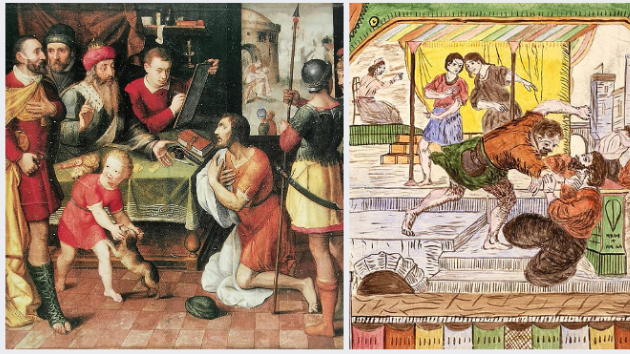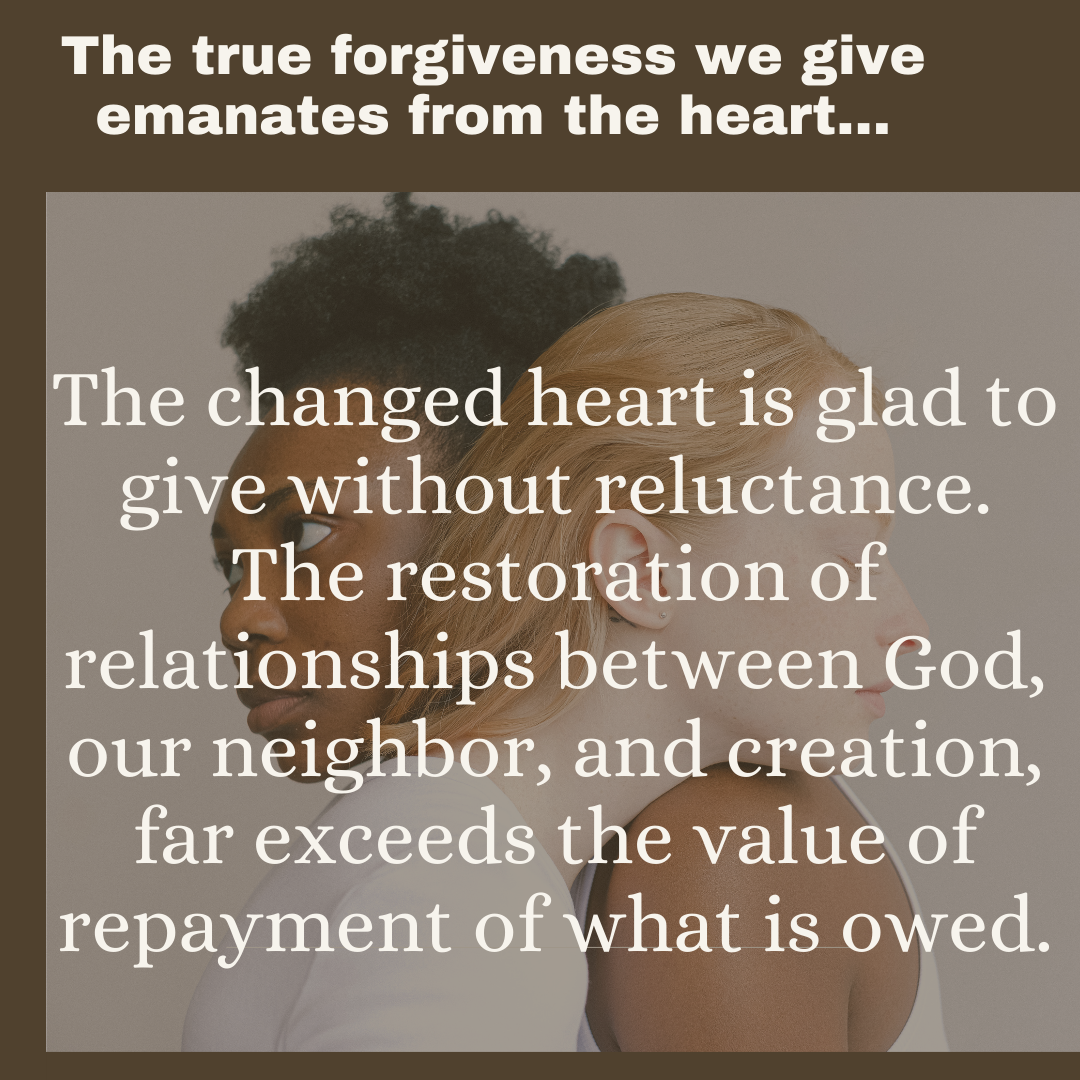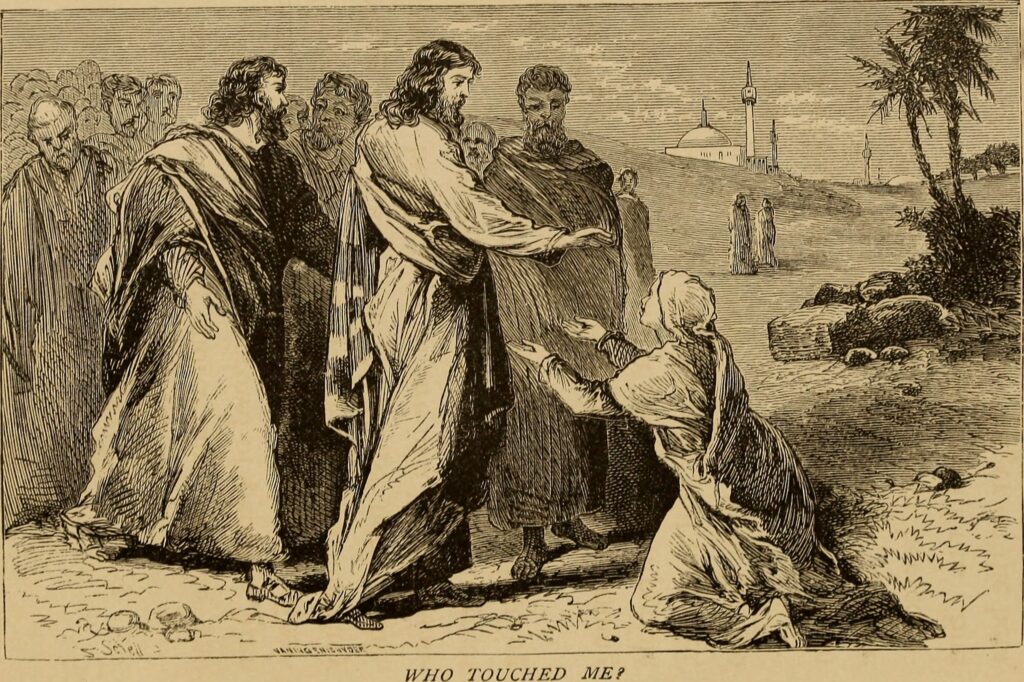Twenty-Fifth Sunday after Pentecost, Year A
THE GOSPEL TRADE
Matthew 25:14-30
Twenty-Fifth Sunday after Pentecost
Analysis by Bruce K Modahl
14 “For it is as if a man, going on a journey, summoned his slaves and entrusted his property to them; 15 to one he gave five talents, to another two, to another one, to each according to his ability. Then he went away. 16 The one who had received the five talents went off at once and traded with them, and made five more talents. 17 In the same way, the one who had the two talents made two more talents. 18 But the one who had received the one talent went off and dug a hole in the ground and hid his master’s money. 19 After a long time the master of those slaves came and settled accounts with them. 20 Then the one who had received the five talents came forward, bringing five more talents, saying, ‘Master, you handed over to me five talents; see, I have made five more talents.’ 21 His master said to him, ‘Well done, good and trustworthy slave; you have been trustworthy in a few things, I will put you in charge of many things; enter into the joy of your master.’ 22 And the one with the two talents also came forward, saying, ‘Master, you handed over to me two talents; see, I have made two more talents.’ 23 His master said to him, ‘Well done, good and trustworthy slave; you have been trustworthy in a few things, I will put you in charge of many things; enter into the joy of your master.’ 24 Then the one who had received the one talent also came forward, saying, ‘Master, I knew that you were a harsh man, reaping where you did not sow, and gathering where you did not scatter seed; 25 so I was afraid, and I went and hid your talent in the ground. Here you have what is yours.’ 26 But his master replied, ‘You wicked and lazy slave! You knew, did you, that I reap where I did not sow, and gather where I did not scatter? 27 Then you ought to have invested my money with the bankers, and on my return I would have received what was my own with interest. 28 So take the talent from him, and give it to the one with the ten talents. 29 For to all those who have, more will be given, and they will have an abundance; but from those who have nothing, even what they have will be taken away. 30 As for this worthless slave, throw him into the outer darkness, where there will be weeping and gnashing of teeth.’
“Those who trade with the gospel wind up with only more grace to share.”
Diagnosis: Called to Account
Step 1: Initial Diagnosis (External Problem): Buried Treasure
There is no one correct interpretation of a parable. Parables are stories laid alongside our lives. Parables, like the rest of the Bible, are thick with meaning, but porous with many points of entry. Here is my take on the parable.
A talent was an enormous amount of wealth, beyond our imagination. Like the pearl of great price and the treasure hidden in the field, this extraordinary sum is used to indicate the value of the gospel. The master lavishes this fortune on his servants. Two of them went out and traded with it. They traded with the gospel. They were in the gospel trade.
The third servant dug a hole and buried it.
Step 2: Advance Diagnosis (Internal Problem): Not Trusting the Product
This third servant was not lazy. It would have taken a big hole to bury that much money. More likely it was a grave-size hole. He did not believe Jesus rose from the dead. Or he didn’t believe it made any difference in his life. He didn’t get in on the gospel trade. He did not believe in the product. He put it back in the ground, forgot about it, and went on with his life.
Step 3: Final Diagnosis (Eternal Problem): The Day of Reckoning
It turns out he dug himself into a hole. The day of reckoning came. The master returned to check on how the gospel trade was going. When he called for an accounting the third servant forfeited the gospel fortune that had been entrusted to him. It wasn’t doing him or anyone else any good buried in the ground as it was.
We don’t hear the final repercussion for this servant in the appointed text. We must read on to verse 30 where we hear the litany that is repeated at the end of many of Jesus’ parables. The master called for him to be thrown into the outer darkness where there will be weeping and gnashing of teeth.
Prognosis: Entrusted with Christ’s Benefits
Step 4: Initial Prognosis (Eternal Solution): Trading His Life for Our Death
And in the outer darkness we witness the enormity of the gospel’s worth. Jesus trusted God to the point of death. Jesus joined the wicked servant in the outer darkness. Jesus bears his and our sins. He is buried in the grave we dig. On the third day God raised him to life. He trades his life for our death, his mercy for our sins, his trust in God for our mistrust. God promises that we too will be raised with Jesus.
Step 5: Advanced Prognosis (Internal Solution): Spirit Powered Faith
The Holy Spirit uses the promise to work faith in our hearts, to engender love for God in which resides a proper fear of God, and to kindle trust so that daily we commend to God’s hands our soul, body, and all that is ours. The gospel regenerates us, erases sin, trumps death, and multiplies itself.
Step 6: Final Prognosis (External Solution): Taking Up the Trade
And then, as a matter of course, we take up the gospel trade. We make use of Christ’s benefits. We take revenge in trade for mercy. For the wrongs we do to others or others do to us we take alienation in trade for the hard work of reconciliation. We trade keeping score and getting even in exchange for a refusal to answer in kind. Rather, we seek to interpret our neighbor’s actions in the best possible light. Stingy hearts and narrow lives we counter with generosity.
You’d think such a trader would end up with a big warehouse full of sin, with revenge lining the basement shelves and paybacks stored in big bins in the attic. But such is the nature of God’s economy that those who trade with the gospel wind up with only more grace to share.





